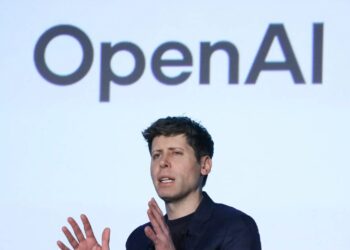The UN’s “AI for Good Global Summit,” which commenced on July 8, 2025, in Geneva, continues to be a pivotal point of reference in ongoing discussions about global AI governance. The four-day event, organized by the International Telecommunication Union (ITU) in collaboration with over 40 UN agencies, brought together governments, tech leaders, academics, and civil society, wrestling with the dual promise and peril of artificial intelligence.
The summit served as a stark reminder that while AI offers unprecedented opportunities to accelerate progress towards the Sustainable Development Goals (SDGs), from revolutionizing healthcare and education to bolstering food security and disaster response, it also presents mounting risks. Doreen Bogdan-Martin, Secretary-General of the ITU, delivered a sobering warning: “The biggest risk we face is not AI eliminating the human race. It is the race to embed AI everywhere, without sufficient understanding of what that means for people and our planet.”
A key concern highlighted was the rapid emergence of “agentic AI” systems capable of autonomous reasoning and action, evolving at a pace that far outstrips existing regulatory frameworks. An ITU survey revealed that a staggering 85% of countries lack an AI-specific policy or strategy, underscoring the fragmented global landscape and the potential for widening digital divides.
The summit showcased a myriad of AI innovations, from flying cars to brain-computer interfaces, illustrating AI’s transformative potential. However, discussions consistently returned to the urgent need for ethical guidelines, bias mitigation, and robust oversight. A dedicated “AI Governance Day” facilitated dialogues between national regulators and international organizations, seeking to bridge the glaring gap in global oversight.
Despite the summit’s conclusion, its themes remain highly relevant. The call for inclusive AI governance, ensuring that the benefits of AI are universally shared and its risks are collectively managed, continues to resonate. As new AI advancements emerge daily, the discussions initiated in Geneva serve as a critical foundation for shaping a future where AI truly serves the public good, rather than exacerbating existing inequalities or creating new dangers. The imperative for a unified, global approach to AI regulation is clearer than ever, emphasizing collaboration over fragmentation to navigate this new dawn of wonders and warnings.










![Online Scam Cases Continue to Rise Despite Crackdowns on Foreign Fraud Networks [Myanmar] Online Scam Cases Continue to Rise Despite Crackdowns on Foreign Fraud Networks [Myanmar]](https://sumtrix.com/wp-content/uploads/2025/06/30-12-120x86.jpg)





